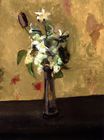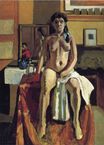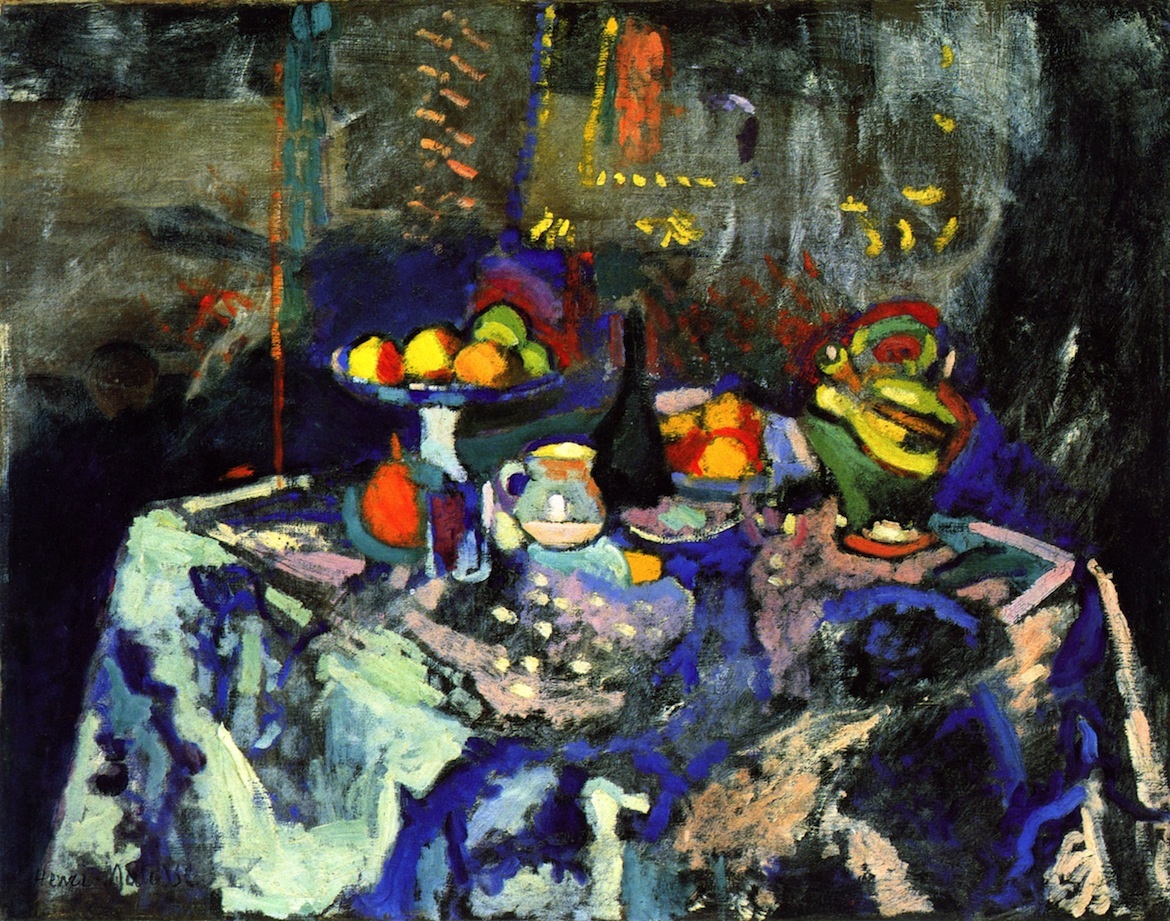Henri Matisse - Still LIfe with Blue Tablecloth. Vase, Bottle and Fruit 1902
 |
 |
 |
 |
 |
 |
 |

Still LIfe with Blue Tablecloth. Vase, Bottle and Fruit 1902
73x92cm oil/canvas
State Hermitage Museum, Saint Petersburg, Russia
<< Previous G a l l e r y Next >>
From the State Hermitage Museum, Saint Petersburg, Russia:
One's first impression of this still
life is of flickering colours which seem to have control of the canvas surface. But, as always in the work of Matisse,
the painting is made up of a combination of "feeling and logic". The energetic rhomboid twist of the table forms a stable
centre to the painting space. The bright, pure colour of the fruit, the uninsistent central axis formed by the milk jug and
dark bottle, and the precise placing of objects around it, all introduce a classical clarity to the work. At the same time
Matisse uses dynamic brushstrokes and the flickering areas of colour to transform his favourite blue tablecloth - also seen
in "The Red Room" (1908) and "Still Life with a Blue Tablecloth" (1909; both Hermitage), but which changes in each work in
accordance with the spirit and purpose of the painting. As X-ray study of the painting has shown, the still life was painted
over another work, the dark tints of which show through the background. The artist covered the earlier painting with
only a thin layer of white, over which he worked the ornamental strokes of yellow, red and green. The result is a marvelous
example of his work during his Fauvist period.